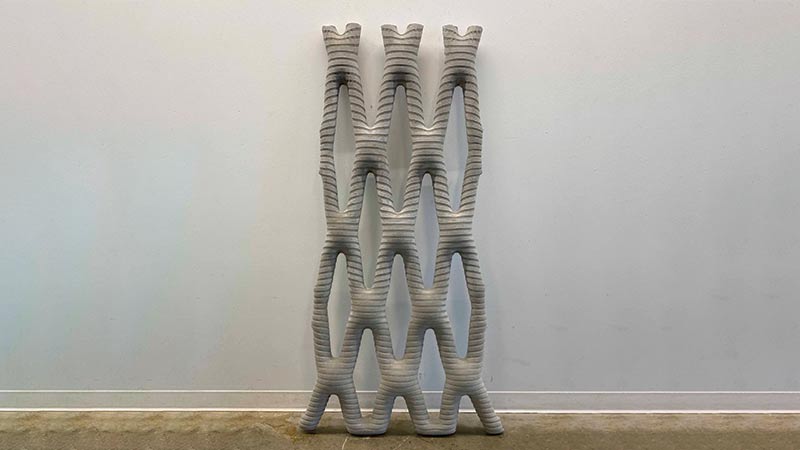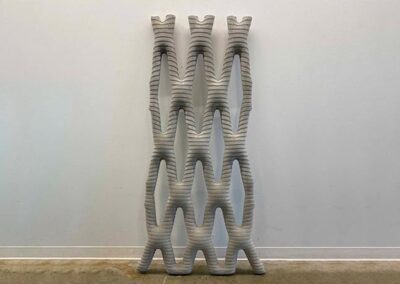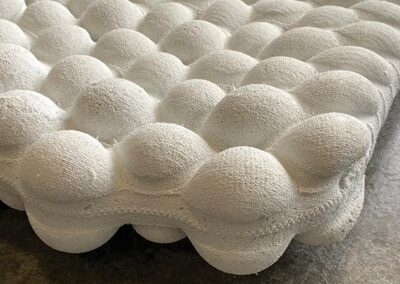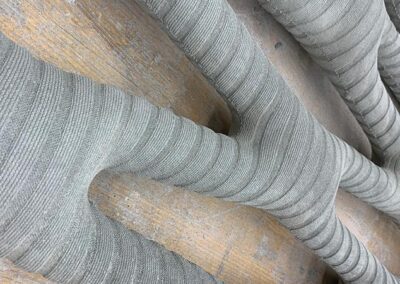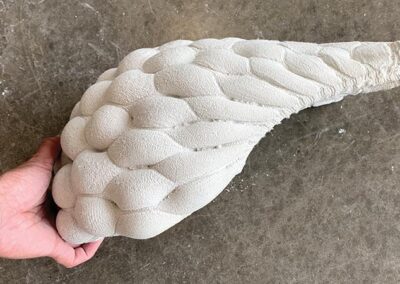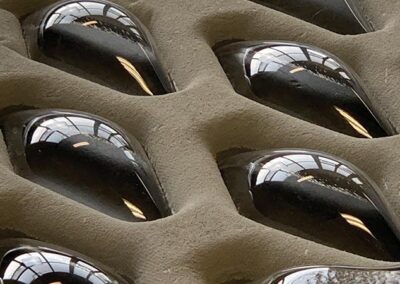Knit Casting explores the use of bespoke Computer Numeric Controlled (CNC) manufactured knits to produce volumetric textile formwork for casting glass fiber reinforced concrete (GFRC). As a collaboration between experts in architecture, textile fabrication, and civil engineering, the research investigates multi-material, functionally-graded knit formwork as a fully seamless system to cast concrete. Working with controlled characteristics such as elasticity and stiffness of yarn type and knit structure, the soft textile is conceived as the vessel that defines the performative characteristics of volume, geometry, and surface detail. With only a minimal frame to suspend the volumetric cast, hydro-static pressure “inflates” the fabric formwork creating a dynamic form-finding process that eliminates the need for typical molding materials such as wood or foam. The precast units using this process reduce the amount of construction waste for formwork production, propose a more automated fashion for manufacturing the formwork, and produce casts with complex geometries difficult to accomplish with traditional casting methods. The present research is comprised of design and manufacturing of customized CNC knitted formwork, working with limitations and parameters inherent to industrial knitting processes as well as concrete casting techniques which required rheological calibration. There are four different typologies developed: the diagrid, drupelet, aperatures, and 3D funndel shell.
Knit Casting is generously supported through the Prototyping Tomorrow Grant Initiative from Taubman College of Architecture and Urban Planning, University of Michigan, as well as a Small Project Grant from the University of Michigan Office of Research (UMOR).
Technical Knitting: Tracey Weisman
Research Assistants: Mackenzie Bruce, Gabrielle Clune, Jeffrey Richmond

